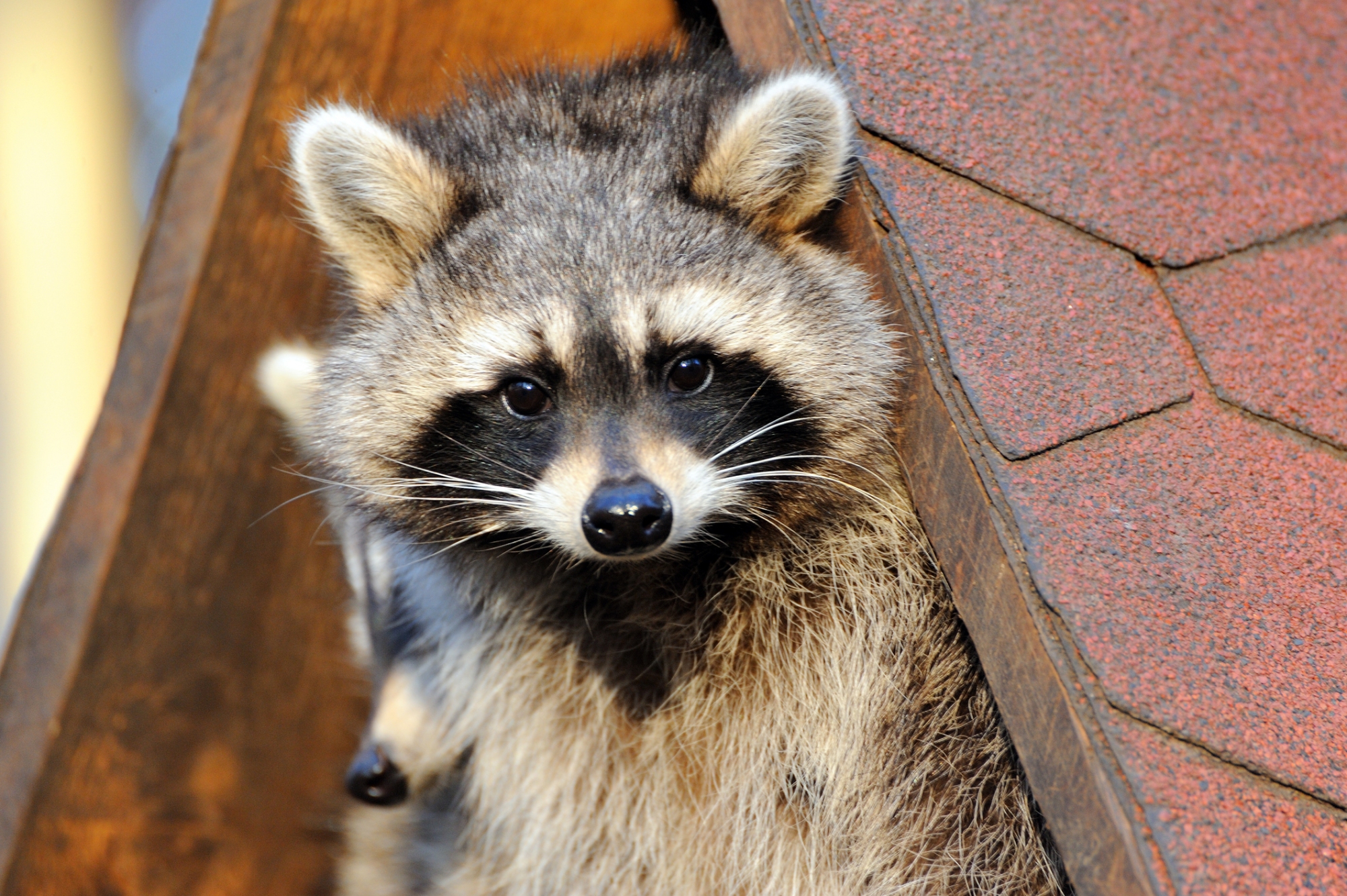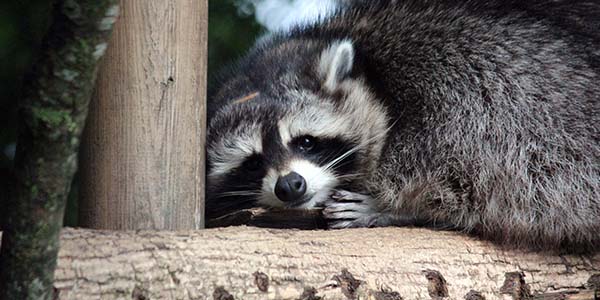Raccoons typically live for 2-3 years in the wild, with some living up to 5 years. Raccoons are a familiar sight in many North American neighborhoods.
These clever and adaptable creatures are often found rummaging through trash cans or prowling around at night. But how long do raccoons actually live? In the wild, raccoons typically have a lifespan of 2-3 years, although some have been known to live up to 5 years.
However, raccoons that live in captivity, such as those in zoos or wildlife rehabilitation centers, can live up to 20 years. The lifespan of a raccoon is influenced by various factors, including their environment, diet, and exposure to predators and disease. We’ll take a closer look at raccoon lifespans and what factors can affect their longevity.
Introduction To Raccoon Longevity
Discover the secret to raccoon longevity by exploring how long these creatures typically live in the wild. Understanding raccoons’ lifespan sheds light on their resilience and survival strategies in the natural world.
A Glimpse Into Raccoon Life
Raccoons are known for their distinctive markings and unique behaviors. These mammals are native to North America and are commonly found in urban areas. Raccoons are opportunistic creatures that can adapt to a variety of environments and food sources. They are mostly active at night and are omnivorous, meaning they eat both plants and animals. Raccoons are also known for their intelligence and problem-solving abilities, which have helped them thrive in urban environments.Why Lifespan Matters
The lifespan of a raccoon is an important aspect of their biology. Understanding how long raccoons live can help us better understand their population dynamics and how they interact with their environment. Raccoons have a relatively short lifespan compared to other mammals, with an average lifespan of 2-3 years in the wild. However, raccoons that are kept in captivity can live up to 20 years. This difference in lifespan is due to a variety of factors, including access to food, shelter, and healthcare.Raccoon Longevity Factors
There are many factors that can impact the lifespan of a raccoon. These include genetics, diet, environment, and disease. Raccoons that live in urban areas may have a shorter lifespan due to exposure to toxins and other environmental hazards. On the other hand, raccoons that live in protected areas with access to abundant food and water may live longer. Understanding these factors can help us better manage raccoon populations and ensure their long-term survival. In conclusion, the lifespan of a raccoon is an important aspect of their biology. Understanding how long raccoons live and the factors that impact their longevity can help us better understand these fascinating creatures and their place in the ecosystem. By protecting raccoon populations and ensuring their access to food, water, and shelter, we can help ensure that they continue to thrive in urban and natural environments alike.
Credit: www.trutechinc.com
Raccoons In The Wild: The Natural Life Cycle
Raccoons in the wild have a fascinating life cycle, from birth and early development to survival tactics and maturity. Understanding the natural life cycle of raccoons provides insight into their behavior and longevity in the wild.
Birth And Early Development
Raccoons are born blind and deaf, relying on their mother for care and protection. They stay in the den for the first few weeks, gradually developing their senses and motor skills. By 12 weeks, they begin to explore the surrounding area under their mother’s guidance, learning essential survival skills.
Survival Tactics And Maturity
As raccoons mature, they become adept at foraging for food and adapting to their environment. They are known for their intelligence and problem-solving abilities, which contribute to their survival in the wild. By 10 months, raccoons reach sexual maturity, and females can begin reproducing, continuing the natural life cycle of raccoons in the wild.
Urban Vs. Rural Raccoons: A Lifespan Comparison
Raccoons are fascinating creatures that can adapt to various environments, including both urban and rural settings. When it comes to their lifespan, however, there are some notable differences between raccoons living in cities and those residing in more rural areas. Let’s explore the challenges faced by city-dwelling raccoons and the different story that unfolds for their rural counterparts.
City Living Challenges
Life in the city can be tough for raccoons, posing unique challenges that can impact their lifespan. The constant presence of humans and the urban landscape can limit their natural behaviors and put them at risk of various hazards:
- 1. Traffic: Urban raccoons often have to navigate busy roads and highways, increasing the likelihood of fatal encounters with vehicles.
- 2. Predators: While raccoons are relatively high up the food chain, cities may have an increased presence of predators like dogs and cats, which can pose a threat.
- 3. Limited resources: Urban environments may offer fewer natural food sources, forcing raccoons to scavenge through human waste and rely on artificial food options, which may not provide adequate nutrition.
- 4. Disease: City raccoons are more prone to diseases transmitted by humans, such as rabies and distemper, which can significantly impact their overall health and lifespan.
Rural Raccoons: A Different Story
On the other hand, raccoons living in rural areas experience a different set of circumstances that can influence their lifespan:
- 1. Natural habitat: Rural raccoons have access to a more extensive range of natural habitats, including forests, fields, and water bodies, allowing them to exhibit their natural behaviors and find suitable food sources.
- 2. Less human interference: With fewer human interactions, rural raccoons face fewer risks from traffic and potential conflicts with humans and their pets.
- 3. Abundance of resources: Rural areas typically provide a diverse array of natural food sources, allowing raccoons to follow their natural diet and meet their nutritional needs more effectively.
- 4. Lower disease exposure: Rural raccoons have a reduced risk of diseases commonly found in urban environments, as they have limited contact with humans and their domesticated animals.
In conclusion, while raccoons are adaptable creatures, their lifespan can be influenced by their environment. City-dwelling raccoons face unique challenges that can shorten their lifespan, such as increased exposure to traffic, predators, limited resources, and diseases. On the other hand, raccoons in rural areas have the advantage of a more natural habitat, fewer human disturbances, abundant resources, and lower disease exposure, which can contribute to a longer lifespan.
Key Factors Influencing Raccoon Lifespan
Diet And Nutrition
Raccoons have a varied diet that includes fruits, nuts, seeds, insects, small mammals, and birds. Their adaptability and ability to find food sources in urban and rural areas contribute to their longevity.
Predators And Threats
Raccoons face threats from predators such as coyotes, bobcats, and owls. Additionally, disease and parasites can impact their lifespan. Avoiding these threats is crucial to their survival.
Human Impact
Human activity can pose significant risks to raccoons. Urbanization leads to habitat loss, and they may encounter vehicles and poisons. Minimizing human impact is essential for their longevity.
The Role Of Disease And Health
When considering the lifespan of raccoons, it’s crucial to acknowledge the significant impact of disease and overall health. Understanding the common illnesses, healthcare, and intervention can provide valuable insights into the longevity of these fascinating creatures.
Common Illnesses
Raccoons are susceptible to various illnesses, including rabies, canine distemper, and parvovirus. These diseases can significantly impact their life expectancy, leading to premature mortality in many cases.
Moreover, they are prone to infections such as roundworm, leptospirosis, and toxoplasmosis, which can further compromise their health and reduce their lifespan.
Healthcare And Intervention
Regular veterinary care and timely intervention play a crucial role in ensuring the well-being and longevity of raccoons. This includes vaccinations to prevent diseases like rabies and distemper, as well as prompt treatment for any health issues that may arise.
Furthermore, providing a safe and clean environment, along with access to a balanced diet, can contribute to the overall health and resilience of raccoons, potentially extending their lifespan.

Credit: pensacola.aaacwildliferemoval.com
Raccoons In Captivity: How Care Affects Their Life
In captivity, the care given to raccoons directly influences their lifespan. Proper diet, enrichment activities, and a spacious living environment can contribute to a longer and healthier life for raccoons. Raccoons can live up to 12 years in captivity when provided with excellent care and suitable living conditions.
Benefits Of A Controlled Environment
Raccoons in captivity benefit from consistent care, nutrition, and safety.
- Regular food supply
- Safe shelter from predators
- Access to medical care
Potential Downsides
Improper care can lead to stress, health issues, and shorter lifespans.
- Lack of mental stimulation
- Inadequate diet
- Restricted movement
Conservation Efforts And Their Impact On Raccoon Populations
Conservation efforts have positively impacted raccoon populations, leading to longer lifespans for these creatures. By preserving natural habitats and managing human-wildlife interactions, raccoons can live up to 3-5 years in the wild and even reach 20 years in captivity. These efforts have contributed to the overall well-being and sustainability of raccoon populations.
Protecting Natural Habitats
Raccoons thrive in diverse habitats like forests, wetlands, and urban areas.
Human encroachment on these habitats threatens raccoons’ survival.
- Preserving forests and wetlands is crucial for raccoon conservation.
- Maintaining biodiversity supports a healthy raccoon population.
Rehabilitation And Release Programs
Injured or orphaned raccoons benefit from rehabilitation programs.
Rescue organizations play a vital role in rehabilitating raccoons.
- Raccoons are nursed back to health and released into the wild.
- Public education helps raise awareness about raccoon conservation.
Fascinating Facts About Raccoon Longevity
Record Age Achievements
Raccoons have been known to live up to 20 years in the wild.
- Oldest raccoon recorded lived 23 years.
- Longevity attributed to adaptable nature.
Comparing With Other Wildlife
Raccoons outlive opossums, which live 2-4 years.
- Raccoons surpass squirrels, which live 6 years.
- Raccoons have higher lifespan than skunks, 2-4 years.

Credit: pensacola.aaacwildliferemoval.com
Frequently Asked Questions
How Long Do Raccoons Live In The Wild?
Raccoons typically live for 2 to 3 years in the wild. However, some can live up to 5 years or more depending on factors such as food availability, habitat quality, and predation.
What Is The Average Lifespan Of A Raccoon In Captivity?
In captivity, raccoons can live for up to 20 years or more. They benefit from a controlled environment, regular feeding, and medical care, which contribute to their extended lifespan compared to their wild counterparts.
What Factors Can Affect The Lifespan Of Raccoons?
Several factors can influence the lifespan of raccoons. These include access to food sources, prevalence of diseases, competition with other animals, human activities like hunting or urban development, and the availability of suitable shelter and nesting sites.
Do Raccoons Have Any Natural Predators That Affect Their Lifespan?
Yes, raccoons have natural predators that can impact their lifespan. Predators such as coyotes, bobcats, owls, and eagles pose a threat to raccoons, particularly young or vulnerable individuals. Predation can limit their lifespan in the wild.
Conclusion
Understanding the lifespan of raccoons sheds light on their behavior and habits. By knowing that raccoons live around 2-3 years in the wild, we can appreciate their adaptability. This knowledge can help in coexisting with these fascinating creatures in a respectful manner.







